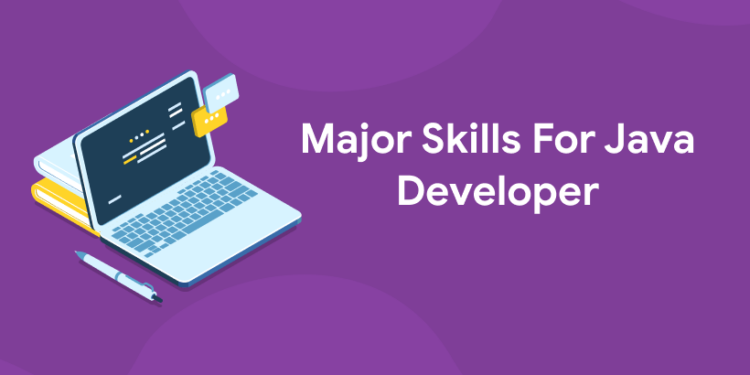Table of Contents
If you’re looking to break into the Java development field, you’ll need to have more than just coding experience on your resume. While programming languages such as Java can be learned from scratch, there are certain skills that are necessary to be able to work in development and for most larger companies, you will need more than just coding experience to land your first job. Java developers, who work primarily with the Java programming language, have many different skills they need to master to be successful in their job. Java is one of the top programming languages used today and there are plenty of reasons why it’s so popular among both developers and businesses that hire them. The backend java developer skills will help ensure you have the knowledge and experience necessary to land your dream job working as a Java developer. Java is one of the most popular programming languages around today, and it’s easy to see why. It has been especially popular in the past decade because of the fact that it can be used to develop both websites and mobile apps, even with relatively little web development experience. As such, there are some great Java developers out there that are making their way up the ladder at some of the biggest companies around the world. So what skills should you have to get there? Read on to find out!…
1) Reading Skills
Many programmers consider themselves effective readers and writers of code, but that doesn’t mean they’re great communicators. A good developer will be able to clearly articulate complex concepts in a way that helps others understand their code. If you’re serious about your coding career, make sure you have excellent reading skills for both technical books and blogs—not only does it make you more employable, but it will also help you get ahead at work. (Especially when your co-workers are struggling to figure out your code.) And if you want to dig even deeper into reading comprehension, here’s a trick we love from Tutor Doctor: color-code key terms while reading nonfiction books—it can make all of the difference!
Enroll in our latest java programming course in the Entri App!
2) Communication Skills
1: What is the default value of a boolean in Java?
A good programmer needs to be able to both understand and explain concepts, which requires exceptional communication skills. All good developers need to be able to explain what they’re doing in a way that makes sense to their team, clients, or business partners. Even if you’re not facing off with an angry manager or client, many problems are easier solved through effective communication. If you can express yourself clearly and effectively , your team will appreciate it and your boss will benefit from clearer feedback when he or she requests status updates on your work. Good programmers also understand that solving a problem is about more than just delivering code; it’s about meeting people’s requirements as well. This requires excellent listening skills and empathy for others. When you’re communicating with other members of your team, remember that everyone has his or her own priorities, goals, and perspectives. Listen carefully to find out how they want things done—and then do them!
3) Problem Solving Skills
Having problem-solving skills is essential for any software developer. Whether it’s a new feature you need to code or a bug that you need to fix, being able to take any situation and find a solution is critical for any good coder. As with most things in life, problem-solving skills get better with practice so if you’re just starting out as a programmer, find as many problems as possible and then go at them with full force. You’ll improve your problem-solving skills exponentially just from doing it often enough. Another key aspect of problem-solving is asking questions – after all, nobody knows everything. If you run into an issue where you can’t figure out what’s going on or how to proceed, ask someone who might know more than you do. It could be a co-worker or it could be another expert in some field related to programming; there are plenty of people who have been working in technology longer than you have who would love to help an up-and-coming developer out. In fact, experienced developers can benefit greatly from mentoring newer coders because they have a chance to reflect on their own learning experiences and see what worked best for them while they were learning their craft. Don’t hesitate to ask other programmers questions – even (or especially) those more experienced than yourself!
4) Time Management Skills
One of my favorite parts about working with Java is that it’s just plain fun. It’s a language that offers you a wide range of possibilities and as long as you’re comfortable with object-oriented programming (OOP), learning its ins and outs will be easy. What’s more, once you learn how to code in Java, there are endless opportunities for it—backend java developer skills can work on Android apps, desktop programs, and many more industries. In fact, given its versatility and ease of use, there are very few other programming languages I would recommend over Java. All of which makes learning it worth your time! If you want to become a successful Java developer, here are some skills you should definitely consider developing This list includes both soft and hard skills – things like communication, leadership, and organization – but they all play an important role in becoming a great Java developer with backend java developer skills. To really excel at what you do, though, make sure to focus on those that are most relevant to your career goals. For example: if you want to become an enterprise software engineer or create games for mobile devices, then technical expertise might be most important; whereas if you have plans to build an app or website for small businesses, then soft skills might take precedence. And don’t forget that these aren’t exhaustive lists – there’s always room for personal improvement!
Get the latest updates on java programming in the Entri App!
5) Writing Skills
No one ever said being a professional developer is easy, but it can be a lot of fun. To make sure you’re having as much fun as possible, these top ten skills will help you continue learning new things even after working in your current industry for years. While you may not need to know all of these skills immediately, having them on your resume can always come in handy when opportunities arise. If nothing else, keep them at arm’s length so that you’ll be able to pick up new things quickly if needed. The faster you can adapt and learn, the better off you’ll be. As such, it’s worth keeping an eye out for new technologies and developments within your field—even if they aren’t exactly part of your job description yet. As long as you’re adding value to what you do now (and have a plan to prove how), most companies won’t mind expanding your responsibilities with extra duties or projects related to something outside of what they’ve asked you to do before. And, since you’ve got some extra time on your hands right now anyway, why not spend some time brushing up on those hard-to-remember technical terms?
6) Flexibility and Adaptability
When you work in any software development environment, you will quickly see that there is no such thing as a standard development project. No two projects are exactly alike and nearly every project has its own unique challenges. To be successful in your career, you will need to have a high level of flexibility and adaptability. This means being open to new technologies, approaches and other cultures as well as able to pick up new skills quickly when necessary. If you can successfully handle change without letting it frustrate or defeat you, it’s a good sign that your future is bright! The best way to develop these traits is through experience. While they might not seem like they have much to do with programming at first glance, exposure to different problems and ways of solving them is what makes great developers great. It helps you develop an understanding for how complex problems can be broken down into manageable chunks while also exposing you to different ideas about what good code looks like. It also helps develop soft skills like communication (which we’ll talk about next). Don’t get stuck working on one type of problem for too long before seeking out something new—you never know where inspiration might come from! Most companies want candidates who already know some programming languages, but it’s not a requirement if you’re willing to learn something new.
7) Creativity and Innovation
Creativity, as defined by Albert Einstein, is doing something new, something wonderful and something beautiful. Creativity means out-of-the-box thinking, and if you want to be successful as a programmer, then it’s key that you learn how to be innovative with your solutions to problems. When faced with an issue or task you have to solve or complete in order to move forward in your coding journey, try turning things on their head; think about ways in which you can solve it differently from normal. Solving problems creatively isn’t always easy but everyone needs a little bit of creativity in their lives; add some flair into your programming life and see what happens! Innovation also plays a major role in programming – it’s not enough just to write code that works well, although you need plenty of practice at that too. You also need to create code and software architecture that scales effectively. As technology evolves and more people use your programs, they’ll get bigger very quickly so ensure you consider performance early on in your projects – there are many practices developers follow such as refactoring legacy codebases where they update older systems so they’re more efficient to run instead of just throwing them away; good programmers should look for these practices too when working on projects big or small so they end up creating awesome products customers will love using for years to come.
8) Team Player Attitude
No one can master every skill necessary to be a great software developer. Because of that, being a good team player is important; you need to learn from your co-workers, and you need to take their input seriously. If you lack respect for your colleagues and their opinions, others are likely to pick up on that and start viewing you as an egocentric person. No one wants to work with someone like that. To ensure that your career goes smoothly and everyone likes working with you, it’s important that you have a team-player attitude. Good listening skills: Another aspect of being a good teammate is being able to listen well. You don’t always have to agree with what people say—you might not even understand everything they tell you—but if you want to build relationships with your co-workers, you should at least try to understand where they’re coming from. Listening is also a way of showing respect for other people’s ideas and thoughts. If someone says something smart or insightful, show them that you appreciate what they said by listening carefully. Excellent communication skills: Communication isn’t just about talking; it’s about writing too.
9) Have fun!
This one is obvious, but it’s worth stating anyway. Having fun with your work is important for many reasons: It makes your job more enjoyable, which in turn will keep you happy and motivated. When you have a passion for what you do—it shows. And when you have a passion for what you do, people notice and they want to be around that kind of energy. When they’re around that kind of energy, they get inspired to do their best work too. That can only benefit your business! So remember—your role may seem challenging at times; just make sure to love what you do and those challenges won’t even matter! As we look back over past jobs, there are some common threads running through all of them. They are all required to use creativity and problem-solving skills while also allowing to take advantage of other strengths such as organization or attention to detail. No single job was ever perfect because every position had its drawbacks like repetition or long hours spent hunched over a computer screen. Sometimes finding a new career path can seem daunting—or we assume we need to go from accounting clerk straight into CEO if we want our dream job. The truth is: There are several ways you can work your way up so don’t limit yourself!
Conclusion
If you’re looking to advance your career, learning to code is one of the most practical and useful steps you can take. It’s time-consuming, but if you make a genuine effort to improve, each new skill will set you on a new career path. Whatever stage of your career that you find yourself in now is a great time to hone your coding skills and become a stronger developer overall. If you are interested to learn new coding skills, the Entri app will help you to acquire them very easily. Entri app is following a structural study plan so that the students can learn very easily. If you don’t have a coding background, it won’t be any problem. You can download the Entri app from the google play store and enroll in your favorite course.











